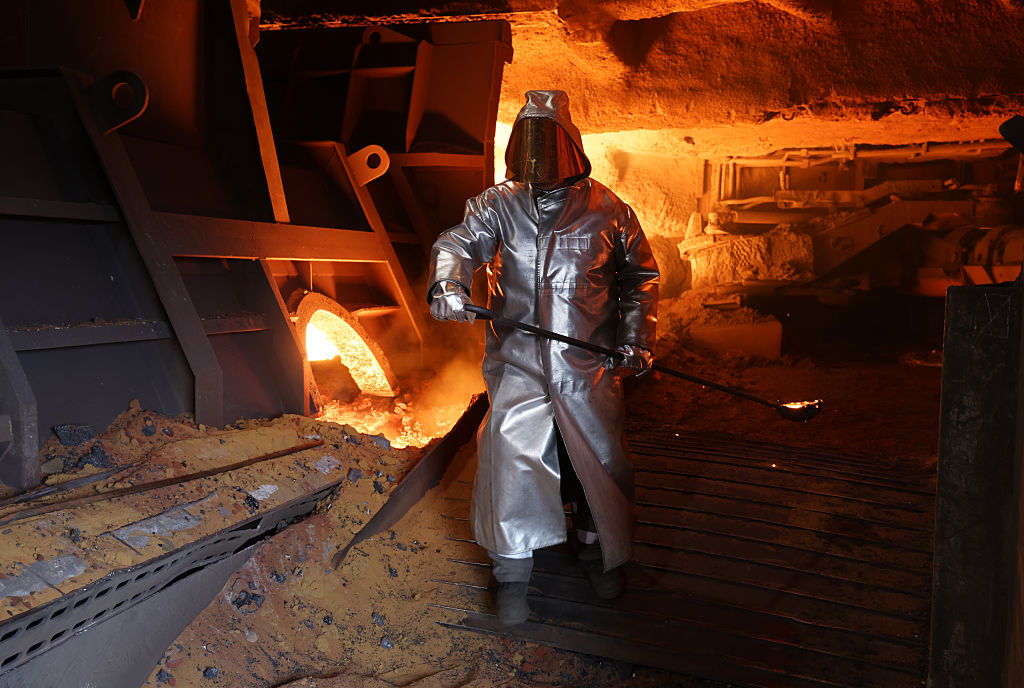Trump’s swift halt to the 12-day Iran war in June 2025 wasn’t just about Tehran’s nukes. It was also about avoiding to engage in a longstanding confrontation with China, the real puppetmaster in this turbulent region.
On June 13, Israel’s jets struck Iran’s nuclear sites. US warplanes followed, hitting three targets, delaying Tehran’s programme. Then Trump’s June 24 ceasefire, posted on Truth Social, held despite Iran’s missile strike on a US base in Qatar.
Why that brief a conflict? China’s shadow looms large. During the war’s first days, Beijing sent cargo planes packed with war material to Iran, while containers from China were unloaded at Iranian ports. The PRC has an ally and partner in the region, whom it will retain and use against Western foes.
This is no kindness, of course. China needs Iran’s oil. Iran supplies about 20 per cent of China’s crude oil imports – 1.6 million barrels daily, often via Malaysia to dodge US sanctions. This oil is Beijing’s lifeline. A prolonged war would choke this supply, spiking Brent crude to $90/barrel, like some days ago.
But Trump also knew a deeper conflict could drag the US and Israel into a proxy war with China. Such a war, against a country of almost 90 millions, additionally armed and supported by China, could spiral into a 21st century Vietnam for the United States.
Beijing has a 25-year-long $400 billion deal with Iran, signed in 2020 and trading oil for investment, which binds them tightly. Iran is also a cornerstone of China’s Belt and Road Initiative (BRI), linking Asia to Europe via rail and ports.
The BRI’s Chabahar port, fuelled by $1.2 billion in Chinese funds, secures trade routes. War in Iran would clog these arteries. But regime change in Tehran would leave China strategically exposed. So Beijing is not going to let it happen without putting up a fight.
Russia, focused on Ukraine, is no real rival in this game. Its $10 billion Iran trade fades next to China’s $50 billion Middle East investments in 2024. Beijing’s $10 billion Saudi-Iran mediation in 2024 flexed its clout.
Europe stumbles in response. The EU’s sanctions on Chinese firms aiding Iran cost €500 million in 2024 but barely scratched BRI. Europe’s 30 per cent reliance on Middle Eastern oil leaves it dependent, thus weak.
The EU’s India-Middle East-Europe Corridor (IMEC), a $20 billion BRI rival, lags. Hampered by Saudi-India disputes and Gaza’s war, only 10 per cent of its budget is reported to have been allocated so far. China’s $1 trillion BRI, on the other hand, surges ahead.
China’s grip tightens. Its 2024 drone shipments to Iran’s proxies – Hezbollah, Houthis – jumped 20 per cent, according to Defense News. A China-Iran rail link, launched May 2025, cuts trade time to 15 days. The PRC is moving disturbingly closer to a traditional sphere of western influence.
The EU’s strategic failures in the Middle East – from Iraq’s chaos to Syria’s collapse – have handed China the reins, as Beijing’s BRI and oil deals reshape the region’s power map. In 2024, China’s $106 billion trade with Saudi Arabia outstripped the EU’s $60 billion. The IMEC, needing €500 billion, stalls while China’s Chabahar port thrives.
Europe’s sanctions on Iran, costing €1 billion in 2024, only push Tehran closer to Beijing, whose $1.5 billion arms deals fuelled Iran’s war machine. Trump’s ceasefire kept prices stable – OPEC noted a 5% drop post-June 25 – and only highlighted Europe’s bystander role.
Trump’s move was no retreat. His Truth Social post greenlighting China’s oil buys from Iran prioritized trade wars over military quagmires, saving NATO allies from a losing fight.
While Trump played chess, Brussels watched from the stands. The EU’s 2024 “strategic autonomy” rhetoric sounds irrelevant as China’s $106 billion Middle East trade outpaces Europe’s $60 billion. Europe must sharpen its game, or remain a spectator in Beijing’s match.
The 12-day war made it clear to all: The US still calls the shots, but with every move on the board, China rises globally. As for Europe, with projects like the IMEC lagging, its output dropping, no significant military power and relations with Russia in ruins, it looks like it is constantly playing catch-up.





Dollars and the old clerical flaws: does Leo XIV have questions to answer?